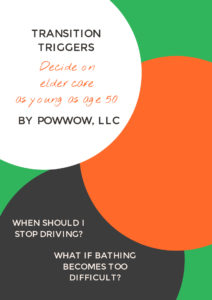Dementia affects millions of individuals and their families, presenting complex challenges that require comprehensive care and support. Recognizing this need, the Centers for Medicare & Medicaid Services (CMS) introduced the Guiding an Improved Dementia Experience (GUIDE) Model. This innovative program aims to enhance the quality of life for people living with dementia and alleviate the burden on their unpaid caregivers.
What is the GUIDE Model?
The GUIDE Model is designed to provide a holistic approach to dementia care by offering a comprehensive package that includes:
- Care Coordination and Management: Ensuring that all aspects of a patient’s care are seamlessly integrated.
Caregiver Education and Support: Providing unpaid caregivers with the necessary tools and knowledge to care for their loved ones effectively.
Respite Services: Offering temporary relief to caregivers, allowing them time to rest and recharge with coverage paid by CMS.
The primary goals of the GUIDE Model are to improve the quality of life for individuals with dementia, reduce the strain on their caregivers, and enable patients to remain in their homes and communities for as long as possible.
Who’s providing this Service?
Locally, in alignment with the CMS initiative, Care Dimensions in partnership with Right At Home has launched its own Dementia GUIDE Program. This program focuses on delivering personalized care plans tailored to meet the unique needs of dementia patients at various stages of the disease.
Also in line with the program, Care Dimensions emphasizes caregiver support by offering educational resources and respite care services (via Right at Home). This ensures that caregivers are well-equipped to handle the challenges of dementia care and have access to necessary breaks to maintain their own health.
For a full list of providers, download the list on CMS.gov.
Who is eligible for the GUIDE program?
 To be eligible for the CMS GUIDE, individuals must meet a few specific requirements. First and foremost, participants must have a confirmed diagnosis of dementia. This diagnosis must be formally recognized by a clinician who is part of the GUIDE Practitioner Roster. In addition to the diagnosis, individuals need to be enrolled in traditional Medicare—specifically Parts A and B—with Medicare as their primary payer. This means you’re eligible if using a supplement plan, but those enrolled in Medicare Advantage plans, including Special Needs Plans or the PACE (Program of All-Inclusive Care for the Elderly) program, are not eligible for GUIDE.
To be eligible for the CMS GUIDE, individuals must meet a few specific requirements. First and foremost, participants must have a confirmed diagnosis of dementia. This diagnosis must be formally recognized by a clinician who is part of the GUIDE Practitioner Roster. In addition to the diagnosis, individuals need to be enrolled in traditional Medicare—specifically Parts A and B—with Medicare as their primary payer. This means you’re eligible if using a supplement plan, but those enrolled in Medicare Advantage plans, including Special Needs Plans or the PACE (Program of All-Inclusive Care for the Elderly) program, are not eligible for GUIDE.
The program is designed for people living in their own homes or in community-based settings (such as assisted living). If already living in a skilled care facility (aka nursing home) or receiving Medicare-covered hospice care, they would not qualify.
By integrating the principles of the CMS GUIDE Model with localized services, programs like those offered by Care Dimensions are making significant strides in improving dementia care. These initiatives not only enhance the lives of those living with dementia but also provide invaluable support to the caregivers who stand by them.

